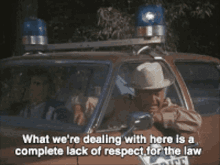olie
Well-Known Member
- Joined
- Oct 9, 2017
- Messages
- 218
- Reaction score
- 35
EDIT: Answered my own question in comment below: "zero" is still the amount that is legal to distill in the US without a distiller's license. LINK
-----
NOTE: I'm not here to rain on anyone's parade, nor to judge anyone. I'm genuinely just asking what I'm asking, with no hidden agenda. "You do you!"
Am I correct that there is no amount of distilled spirits for drinking that is legal to "homebrew" in USA? Or did that change recently, and I'm just behind the times?
(Context: I saw the forum title: "discussion about legal distilling" and thought "so is it just all the Euro/non-US members?!", but then wondered if the rules have changed since I was last aware.)
I was under the impression that, without a distillery license, "zero" was the amount of distilled spirits a USA-ian is legally allowed to make. Also that folks get around the "have a still" thing by making purified drinking water, biofuels and other not-for-consumption products.
Is that still the case? Or am I (a USA-ian) allowed to legally dabble in "moonshine" now-a-days?
If things have changed and there is now an allowed amount (similar to the 200 gallons/year for homebrew), can someone post a link to the relevant statutes?
Thanks!
-----
NOTE: I'm not here to rain on anyone's parade, nor to judge anyone. I'm genuinely just asking what I'm asking, with no hidden agenda. "You do you!"
Am I correct that there is no amount of distilled spirits for drinking that is legal to "homebrew" in USA? Or did that change recently, and I'm just behind the times?
(Context: I saw the forum title: "discussion about legal distilling" and thought "so is it just all the Euro/non-US members?!", but then wondered if the rules have changed since I was last aware.)
I was under the impression that, without a distillery license, "zero" was the amount of distilled spirits a USA-ian is legally allowed to make. Also that folks get around the "have a still" thing by making purified drinking water, biofuels and other not-for-consumption products.
Is that still the case? Or am I (a USA-ian) allowed to legally dabble in "moonshine" now-a-days?
If things have changed and there is now an allowed amount (similar to the 200 gallons/year for homebrew), can someone post a link to the relevant statutes?
Thanks!
Last edited:











































![Craft A Brew - Safale S-04 Dry Yeast - Fermentis - English Ale Dry Yeast - For English and American Ales and Hard Apple Ciders - Ingredients for Home Brewing - Beer Making Supplies - [1 Pack]](https://m.media-amazon.com/images/I/41fVGNh6JfL._SL500_.jpg)
















